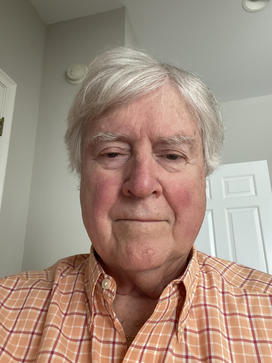Newsmakers Q&A: Peter Wilson ’66 on Getting Blacklisted by Russia
‘The institutional corruption was far worse, I think, than we imagined or understood,’ Wilson says

How did you hear about being on the list?
One of my colleagues at RAND Corporation sent me an email saying “you’re on the list.” I said, “What list?”
It’s an interesting situation. I personally believe that Vladimir Putin will go down in history as one of the most disastrous commanders in chief in modern history. We now know, even though we’ve done a lot of work on trying to understand the Russian aerospace and defense sector, we didn’t fully understand the depth and breadth of the mendacity, the lying. The institutional corruption was far worse, I think, than we imagined or understood.
How long do you think the war in Ukraine will last?
This is the trinity of Clausewitz in play here. It’s an example of how corrupt and ineffective — and I mean just shocking how bad — the Russian military is. There has been a learning process by the Russian military only out of desperation, but it’s still remarkable how slow they’ve been to react to the failures of their first phases of this war.
And now we’re going into a period of the fighting where I believe the Russian army is going to be defeated very dramatically during the course of this summer. What happens to Putin and company when they really are cornered rats? Do they seriously think about using nuclear weapons, contemplating their use or not? I think we’re headed to a crisis period quite quickly.
This is not going to be a long war, in my opinion. The Russian army, basically Vladimir Putin and his high command of the Russian armed forces, has destroyed the modern Russian army on the battlefield. What’s left are poorly mobilized, poorly trained troops, who have got low morale and who are treated like … lunchmeat, so to speak.
It is like the Egyptians and Israelis, the Six Day War in the Sinai. The Egyptians fought like hell and inflicted heavy casualties on the Israelis the first day of the war. And then once the Israelis started to break through, the whole Egyptian army disintegrated. I think we’re headed for that type of scenario. The one big surprise for me is the willingness of Russians … to fight and die for an authority that still is utterly corrupt. There’s something about the culture that just seems to promulgate this. I thought this army might have cracked last summer given the casualties and [what] they had already suffered, but it didn’t.
Back to this list. How or why does someone get on it?
In the Rand case, it was people who had written materials that were critical of Russia. Those who had not written about Russia or China, or were writing articles that were “fair and balanced” about trying to understand Putin’s motivations — they were not on his list because they weren’t viewed as hostile to Russia.
Part of that list is a political list, people who have been unfriendly to not only Russia, but to Donald J. Trump. That’s the other noteworthy feature to get you on the list. So that’s why you get Stephen Colbert, others who have been highly critical of the Russians and Trump. It was clear in a very blatant way, saying “Trump is our man, how dare you attack him,” which is not very subtle. And sound. Interestingly enough, there is a common feature, and that is this notion of a religious, sectarian nationalism, which informs both movements. So that’s another interesting aspect of all of it.











No responses yet